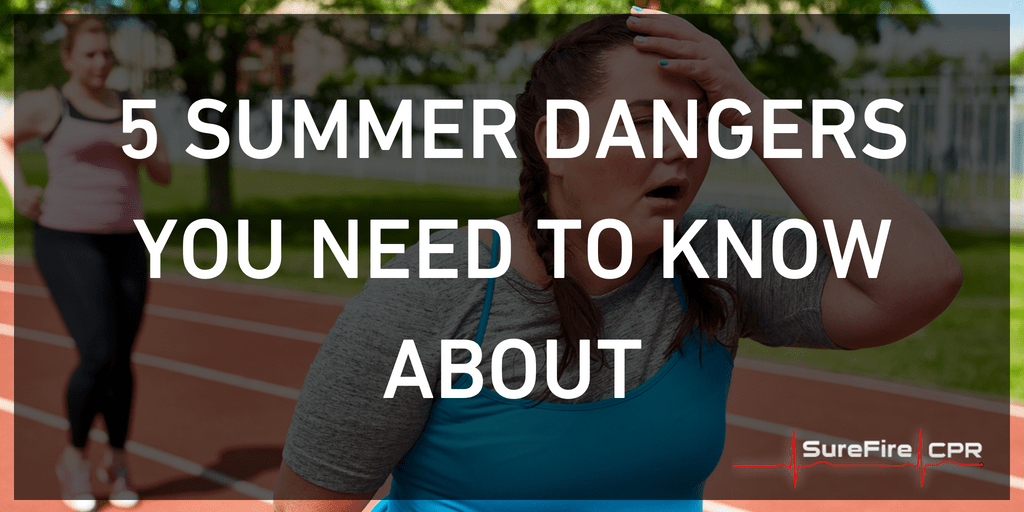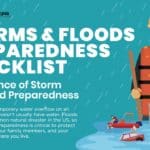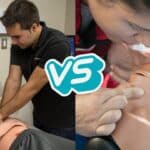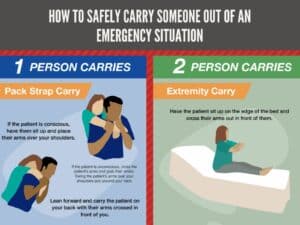Summer is a wonderful time to get outside and enjoy the beautiful weather. Yet it is important to do so carefully; otherwise, you risk accidents, injuries and other immediate and long-lasting health issues.
There are lots of things you can do to stay safe during the summer. Now, let’s take a look at five summer dangers, along with tips to address such problems.
-
Dehydration
Dehydration occurs when the body lacks a sufficient amount of water. There are many physical symptoms associated with dehydration, and these include:
- Diarrhea
- Dizziness
- Dry mouth
- Sweating
- Vomiting
Recent research indicates approximately 75% of Americans suffer from chronic dehydration, according to Medical Daily. Without the proper amount of water, the body cannot effectively digest and absorb vitamins and nutrients. And as a result, those who are dealing with chronic dehydration may experience long-term fatigue, joint pain and other health problems.
Extreme heat makes people more susceptible to dehydration during summer, but there are many things you can do to limit the risk of dehydration, such as:
- Carry a reusable water bottle. Take a reusable water bottle with you everywhere you go and refill the bottle throughout the day; that way, you can stay hydrated at all times.
- Wear the right clothing and accessories. Light-colored clothing is less likely to absorb heat than dark-colored apparel. Also, a hat and sunglasses will help you remain cool and comfortable outdoors.
- Eat the right foods. Consume fruits, vegetables and other foods that are easy to digest and high in water content.
- Take a break. The sun reaches its peak between 10 a.m. and 2 p.m. so you may want to take a break from outdoor summer activities during this time frame.
Dehydration can affect anyone, at any time. But if you prepare accordingly, you can avoid mild, moderate and severe dehydration symptoms.
-
Heat Exhaustion
Heat exhaustion occurs when the body overheats, and it is associated with excessive exposure to high temperatures and humidity and strenuous physical activity. Common heat exhaustion symptoms include:
- Faintness
- Fatigue
- Headache
- Muscle cramps
- Nausea
If heat exhaustion goes untreated, it may lead to heatstroke, a life-threatening condition. Fortunately, there are numerous precautions you can take to prevent heat exhaustion, and these include:
- Stay hydrated. Drink lots of water to help your body maintain a normal temperature.
- Apply sunscreen. Use a sunscreen that has a sun protection factor (SPF) of 15 or higher to safeguard your skin against sunburns that otherwise may lead to heat exhaustion. You also should reapply sunscreen approximately every two hours.
- Wear lightweight clothing. Loose-fitting and lightweight apparel will help you keep your body cool.
- Rest frequently. Avoid strenuous activity and take regular breaks in cool spots.
In the event of a heat exhaustion emergency, try not to panic. Instead, stop all activity, rest, move to a cool place and consume cool water. If heat exhaustion symptoms linger, contact a doctor.
-
Ticks
Ticks thrive in hot and humid summertime conditions, and they may carry Lyme disease, a condition that causes fatigue, headaches and other physical symptoms. Lyme disease is transmitted through the bite of an infected black-legged tick. And if Lyme disease goes unaddressed, it may lead to long-term heart, nervous system and joint problems.
The U.S. Centers for Disease Control and Prevention (CDC) estimates approximately 300,000 people experience Lyme disease due to tick bites annually. If you know how to protect yourself against tick bites, however, you can reduce the risk of tick bites while camping, gardening or enjoying other summer activities.
Some of the best ways to prevent tick bites during summertime include:
- Know where to expect ticks. Ticks are commonly found in wooded and grassy settings. Therefore, if you walk or play in these areas, you should keep an eye out for ticks.
- Use insect repellent. Insect repellent that contains DEET delivers outstanding protection against ticks and other bugs. Apply insect repellent generously to your body. You should treat your boots, socks and other apparel and accessories with insect repellent as well.
- Perform a tick check. When it comes to Lyme disease, it is a good idea to err on the side of caution. With a tick check, you can examine your body for ticks and remove ticks following any outdoor activities.
A proactive approach to ticks may enable you to avoid tick bites. Additionally, this approach may protect you against Lyme disease.
-
Drowning
Unintentional drowning is one of the leading causes of unintentional death in the United States. Approximately 10 people die from unintentional drowning every day, CDC reports. Among these people, two are age 14 or younger.
It is crucial to understand the risks associated with unintentional drowning. If you plan to swim at a beach or pool this summer, here are some of the things you can do to prevent unintentional drowning emergencies:
- Choose the right life jacket. Pick up a life jacket that will enable you to keep your head above water and breathe while swimming. A life jacket should provide a snug fit and be tested for wear and buoyancy at least once a year.
- Use the buddy system. Never swim alone; swim with a friend, family member or any other buddy. Whenever possible, you should swim at a beach or pool that has a lifeguard on duty, as well.
- Sign up for swimming lessons. Swimming lessons are available for kids and adults and teach students how to swim safely.
- Avoid alcohol. You should never drink alcohol before or during swimming – without exception.
- Check the weather. High winds and other inclement weather can quickly change swim conditions. Thus, you should take a look at the weather forecast before you go to a beach or pool.
Of course, cardiopulmonary resuscitation (CPR) training enables anyone – regardless of age – to reduce the loss of life in drowning emergencies. A CPR class teaches individuals what to life-threatening situations including drownings. Plus, a CPR class usually requires just a few hours to complete and enables students to earn a CPR certification card that remains valid for two years.
-
Car Accidents
August and September are among the peak months for car accidents in the United States. Some of the reasons why this is the case include:
- School is not in session. Teen drivers tend to spend more time on the road during summertime, and these inexperienced drivers may be more susceptible than others to collisions.
- Summer heat may cause vehicle failures. Hot, muggy weather increases the likelihood of tire blowouts and associated traffic accidents.
- Roadway projects are common during summertime. Road crews tend to complete road construction projects in summertime. These projects may lead to shut-down traffic lanes, detours and other roadway changes that boost the risk of collisions.
In some instances, car accidents are unavoidable. Yet sometimes there are many things you can do to protect yourself and others when you drive this summer, such as:
- Schedule a service trip. Regular car tune-ups, oil changes and other car maintenance tasks enable you to keep your car running.
- Buckle up. Wear your seatbelt every time you drive, and ensure your passengers do the same.
- Stay alert. If you feel tired while driving, take a break. Furthermore, if you are traveling on a long road trip, don’t hesitate to stay at a hotel or family resort overnight and resume your journey the next day.
- Don’t text and drive. Keep your eyes on the road – not your phone. If necessary, you can always have a “designated texter” to hold your phone while you drive.
There is no telling when a car accident will happen. Thanks to the aforementioned tips, you can limit the risk of car accidents. You may even be able to stop car accidents from happening.
Clearly, there are lots of summer dangers to consider. If you prepare for summer dangers, you can stay safe during beach trips, camping excursions and other summertime activities. Best of all, you can put yourself in a position to enjoy an accident-, disease- and injury-free summer.











